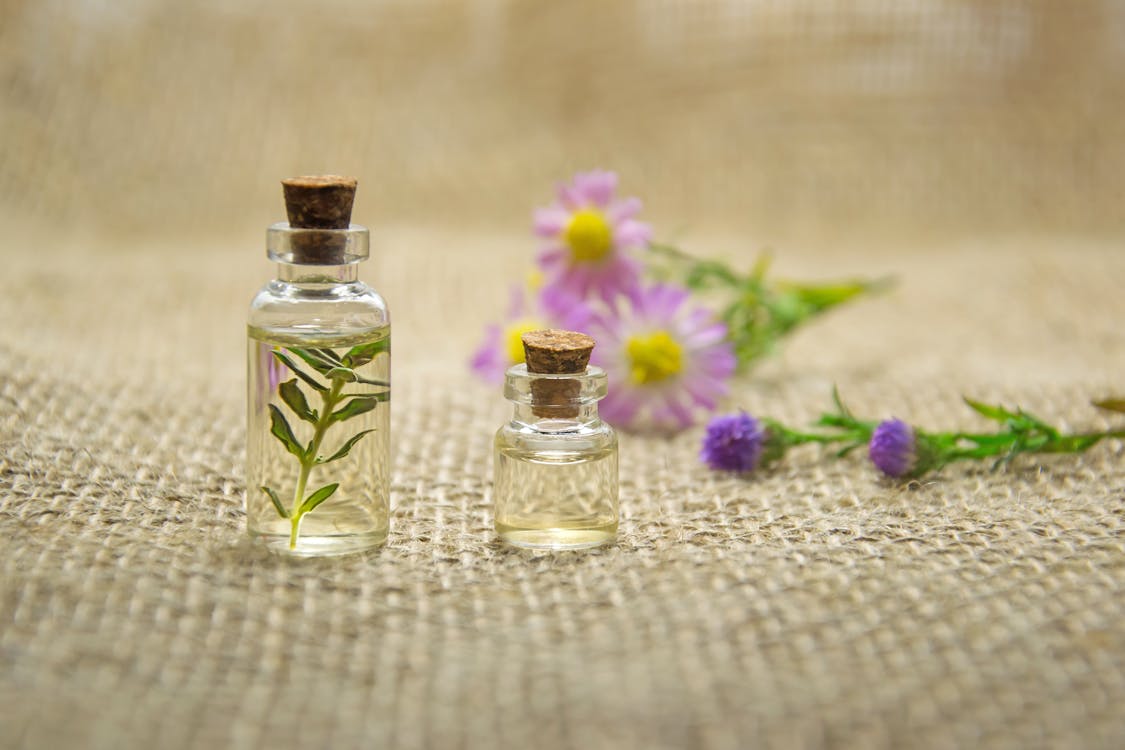10 Amazing Benefits of Tea Tree Oil
1. Antimicrobial Properties:
Tea tree oil, extracted from the Melaleuca alternifolia plant, is renowned for its robust antimicrobial qualities. The key active compound, terpinen-4-ol, plays a crucial role in combating a wide array of microbes including bacteria, viruses, and fungi. This makes tea tree oil a versatile natural remedy for addressing various infections, whether applied directly onto the skin or diffused in the air.
When used topically, tea tree oil can effectively disinfect wounds and cuts, preventing microbial growth and promoting faster healing. Its ability to purify the air also makes it beneficial for creating a cleaner and healthier environment indoors. By reducing the presence of airborne pathogens, tea tree oil helps in maintaining overall hygiene, which is particularly advantageous in household settings and during times of illness.

2. Acne Treatment:
Tea tree oil’s reputation as an effective acne treatment stems from its dual action of being anti-inflammatory and antimicrobial. These properties enable it to combat acne-causing bacteria while also reducing the redness and swelling associated with acne breakouts. When applied directly to the skin, tea tree oil penetrates deep into pores, helping to unclog them and prevent the formation of new blemishes.
Unlike harsh chemical treatments that can cause dryness and irritation, tea tree oil is gentle on the skin, making it suitable for those with sensitive skin types. Its natural formulation ensures that it does not strip the skin of its natural oils excessively, thereby maintaining skin hydration and balance.
Read Also:
Healthy Foods For Keeping Healthy Weight In Winters Cold
3. Skin Care:
Tea tree oil is renowned for its soothing and healing properties, making it a valuable asset in skincare routines. For conditions like eczema and psoriasis, tea tree oil’s anti-inflammatory and antimicrobial actions help to alleviate symptoms such as itching, redness, and inflammation. By reducing these symptoms, tea tree oil supports the skin’s natural healing processes, promoting overall skin health and regeneration.
When used in skincare formulations or diluted with a carrier oil, tea tree oil can effectively cleanse and soothe problematic skin areas. Its natural composition makes it a preferred choice for those seeking gentle yet effective solutions for various skin concerns. Moreover, tea tree oil’s ability to combat bacteria and fungi makes it beneficial for treating minor skin infections and preventing their recurrence.
Regular use of tea tree oil in skincare can help maintain a clear complexion and address common skin issues without the harshness often associated with synthetic products. Whether applied topically to specific areas or incorporated into daily skincare routines, tea tree oil offers a natural and holistic approach to achieving healthy, balanced skin.
4. Hair Care:
Tea tree oil’s benefits extend beyond skincare to include hair care, particularly in addressing scalp issues like dandruff and dryness. When added to shampoo or scalp treatments, tea tree oil’s antifungal properties target the yeast responsible for dandruff, helping to reduce flakes and itchiness.
Moreover, tea tree oil soothes scalp irritation and regulates oil production, creating an environment conducive to healthy hair growth. By unclogging hair follicles and promoting circulation to the scalp, tea tree oil supports the nourishment of hair roots, potentially leading to stronger and more resilient hair strands.
Incorporating tea tree oil into a hair care routine can also help maintain scalp cleanliness and balance, crucial for preventing conditions like scalp acne and excess oil buildup. Its natural cleansing properties make it a gentle yet effective alternative to chemical-laden hair products, particularly suitable for individuals with sensitive scalps or those looking to embrace a more natural approach to hair care.
5. Antiseptic:
Tea tree oil’s broad-spectrum antimicrobial properties make it an effective natural antiseptic for wound care. Its ability to kill bacteria and prevent infection makes it a valuable addition to first aid kits. When applied topically to cuts, scrapes, and minor wounds, tea tree oil helps clean the area, reduce inflammation, and promote faster healing. Its natural composition makes it a safe and gentle option for disinfecting wounds, especially for those with sensitive skin or allergies to conventional antiseptics.
Read Also:
11 Best Ways to Improve Your Digestion
6. Insect Repellent:
Tea tree oil’s distinct fragrance serves as a natural deterrent against insects, making it a reliable choice for repelling mosquitoes, flies, and other pests. Whether used in sprays, diffusers, or applied topically, its potent aroma creates an environment that insects find unappealing, thereby reducing the likelihood of bites and irritation. This natural repellent quality makes tea tree oil an appealing alternative to chemical insect repellents, which may contain synthetic ingredients that some individuals prefer to avoid.
When used in outdoor settings or indoors, tea tree oil can be diffused to create an atmosphere that insects avoid. Additionally, incorporating it into homemade sprays or lotions provides a practical way to protect against insects without exposing oneself to potentially harmful chemicals. Its effectiveness, coupled with its natural origins, makes tea tree oil a versatile tool for maintaining comfort and safety during outdoor activities or in areas prone to insect presence.
Tea tree oil’s role as an insect repellent aligns with its broader reputation for natural antimicrobial properties. By harnessing its natural defenses, individuals can confidently manage insect interactions without compromising their preference for natural, plant-based solutions.
7. Nail Fungus Treatment:
Tea tree oil’s antifungal properties make it an effective treatment for nail fungus infections, scientifically referred to as onychomycosis. This common condition affects the nails, causing discoloration, thickening, and often discomfort. Tea tree oil’s natural composition allows it to penetrate the nail bed, targeting the fungus directly to halt its growth and promote healing.
Regular application of tea tree oil can lead to noticeable improvements in nail appearance over time. It helps restore the nail’s natural color and texture while reducing symptoms such as brittleness and roughness. Unlike some conventional treatments that may carry side effects or require prolonged use, tea tree oil offers a gentler alternative that many find appealing for its natural origins and effectiveness.
8. Deodorant:
Tea tree oil’s role in natural deodorants stems from its powerful antimicrobial properties. These properties enable it to combat the bacteria that contribute to body odor effectively. By targeting and neutralizing these bacteria on the skin’s surface, tea tree oil helps to alleviate unpleasant odors naturally. This makes it a preferred choice for individuals seeking alternatives to conventional deodorants containing synthetic chemicals and fragrances.
The use of tea tree oil in deodorants also promotes skin health and hygiene. Unlike some commercial products that can irritate sensitive skin, tea tree oil offers a gentle solution that is well-tolerated by many. Its natural composition supports overall skin balance while providing reliable odor protection throughout the day. This makes it particularly suitable for individuals with sensitive skin who may experience irritation from other deodorant options.

9. Mouthwash:
Adding a few drops of tea tree oil to water creates a natural mouthwash that helps fight bad breath and oral bacteria. Tea tree oil’s antimicrobial properties target the bacteria responsible for oral odor, reducing the buildup of plaque and tartar. Its soothing properties also help alleviate gum inflammation and promote oral hygiene. Regular use of tea tree oil mouthwash can contribute to fresher breath, healthier gums, and improved overall oral health.
Read Also:
10. Household Cleaner:
Tea tree oil’s antimicrobial properties make it a versatile and effective natural cleaner for household surfaces. As a potent disinfectant, it can help eliminate bacteria, viruses, and fungi when used in cleaning solutions. When diluted in water or combined with other natural ingredients like vinegar or baking soda, tea tree oil becomes even more effective at sanitizing various surfaces throughout the home.
One of the key advantages of using tea tree oil as a household cleaner is its natural composition. Unlike many chemical-based cleaners that contain harsh substances, tea tree oil offers a safer alternative that reduces exposure to potentially harmful chemicals. This makes it particularly appealing for households with children, pets, or individuals sensitive to synthetic fragrances and harsh cleaning agents.




